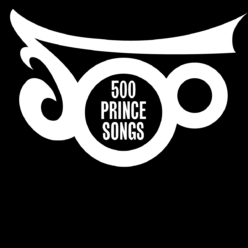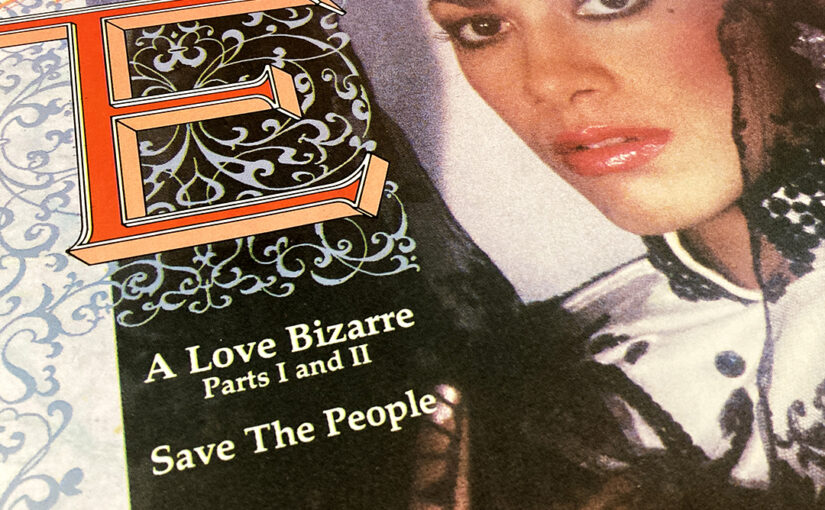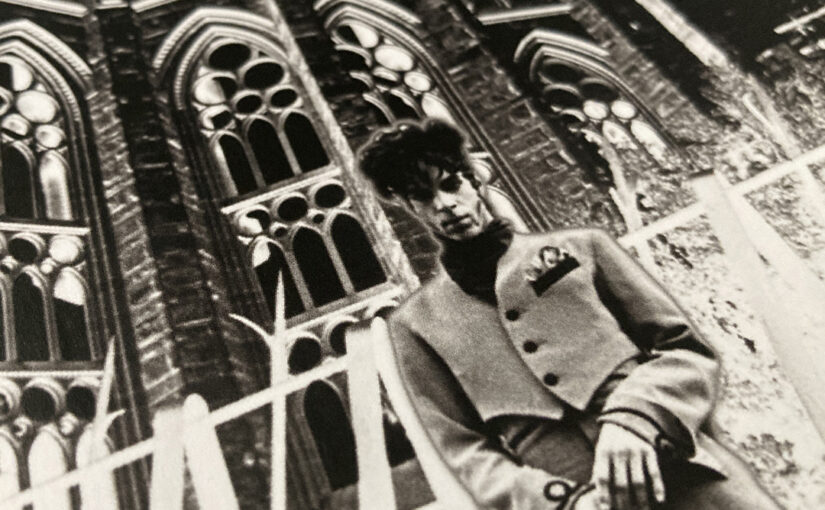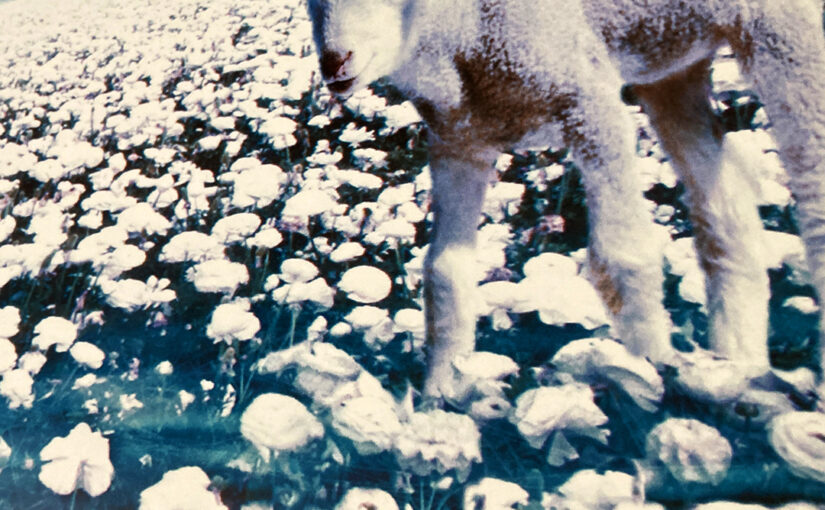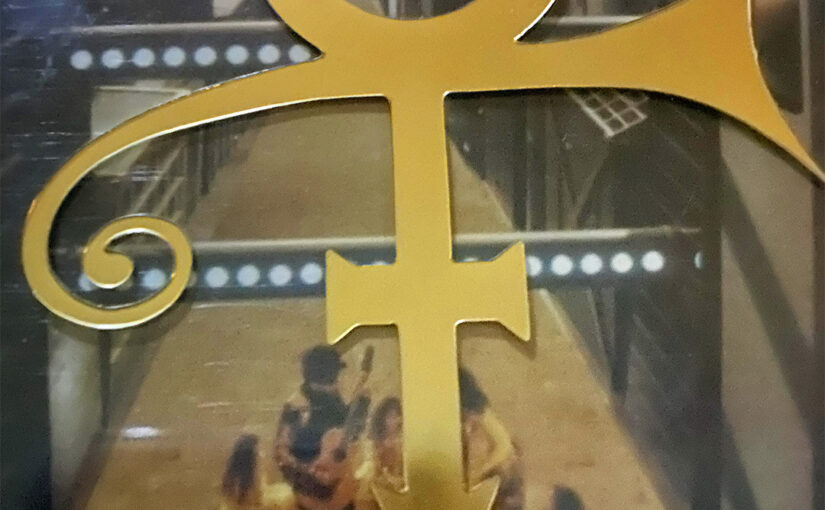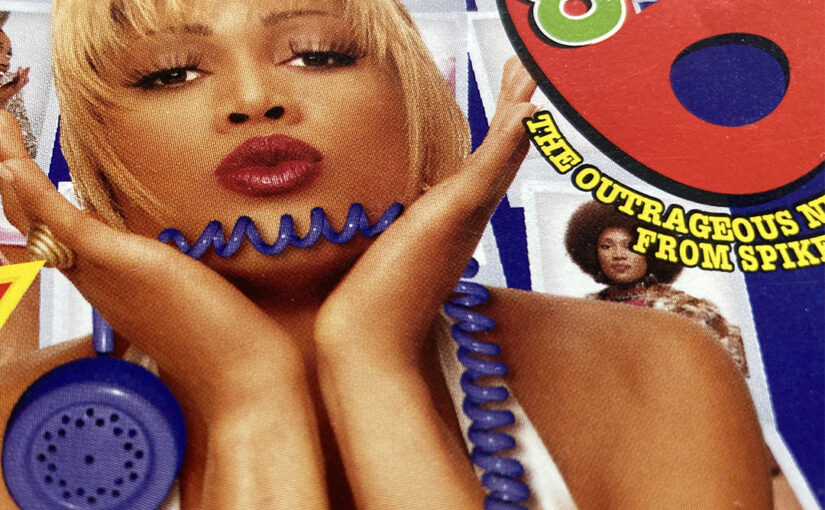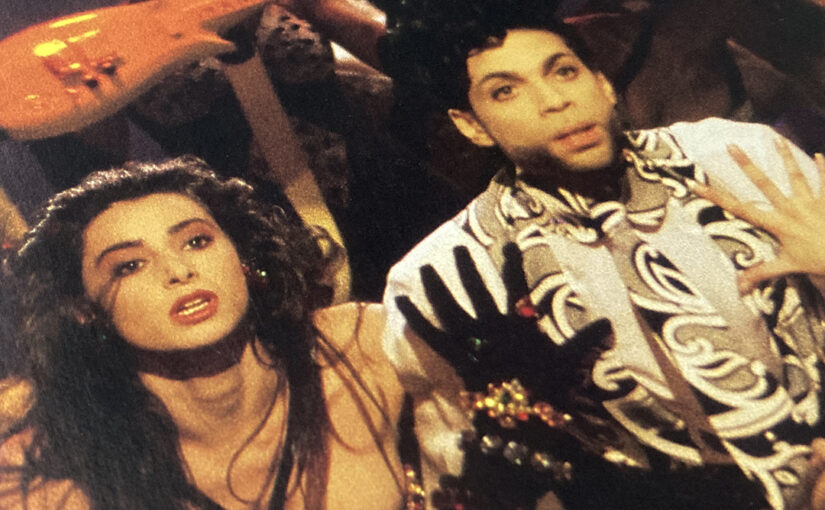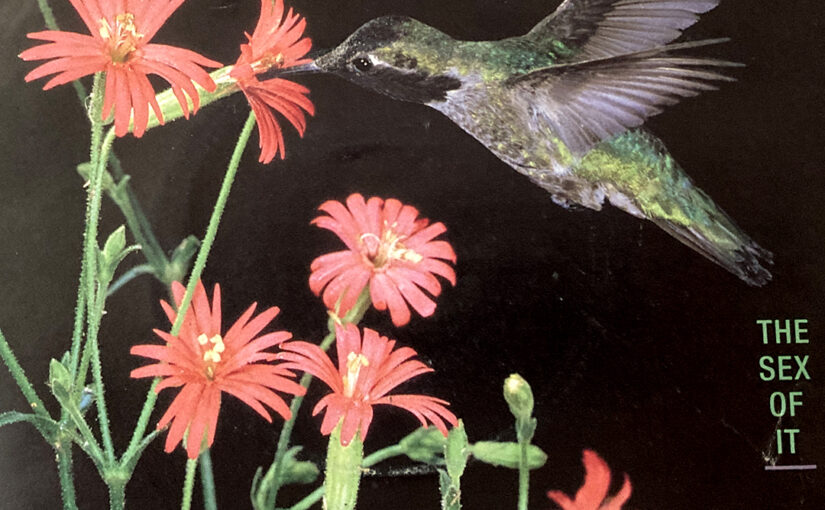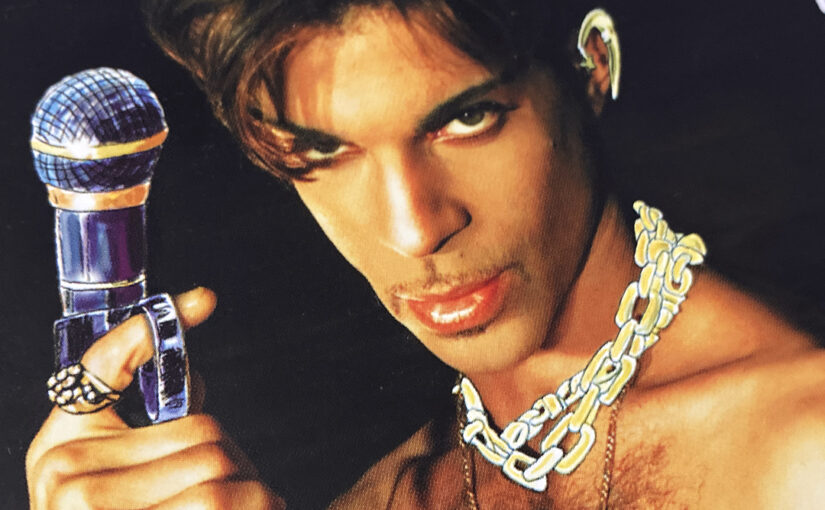Diamonds and Pearls (1991)
It gave its name to an album, tour and a pair of dancers but there’s always been something immutable about the song Diamonds and Pearls. Can you even imagine a remixed version? Sacrilege! The downside is it will always sound the same. Repeated listens won’t unearth any surprises because its diamond-like transparency has already revealed its depths. There are no mysteries to be unlocked except how a world containing famine, war and reality TV can also house something as crystal pure as this song. So I keep it in a box for safe keeping. Glad it exists but rarely take it out to play with. Its immaculate, smooth exterior allows no space for the terrestrial grime of life. Others may be able to enclose it like an oyster and make a pearl by coating it with layers of meaning, but to me it will always remain an exquisite glass bead.
89: Under the Cherry Moon
Parade (1986)
They say comparison is the thief of joy but I can’t help measuring Under the Cherry Moon against the similar-sounding Question of U. Which do you prefer? I used to think the peak-Prince aura of the 80s surrounded the first, while the second wore the millstone of the 90s. But that’s a mirage as both were written in 1985. Over the years I’ve grown to prefer the Graffiti Bridge track as the patchwork quality of that album makes me latch on to the peaks with an iron grip. In contrast, there’s not a single bad track on Parade so Under the Cherry Moon blends in against a backdrop of consistent excellence. Setting is important. It’s why I’ve only watched the Under the Cherry Moon motion picture once. It was part of a perfect after-hours moment, cherished due to many reasons not involving the film that I don’t want to rewatch it lest I pollute the memory. I’ve read enough reviews since that suggest a critical eye wouldn’t be kind. This was almost two decades ago so I can’t recall how well the title song was utilised but as it waltzes with an air of the French Riviera and death it sounds thematically on point. Or perhaps the song has slowly supplanted the film in my mind. There’s enough space in the composition to fill with an accumulation of black and white Gallic daydreams over the years. Have I filed them under a plot of a film I daren’t watch back? Maybe I do prefer this Parade track. It could be the closest I’ve come to being a Hollywood director.
90: Cloreen Bacon Skin
Unreleased (1983) / Crystal Ball (1998)
My first listen of the Crystal Ball album took me back to being five years old again. I’m a kid staring at a mound of birthday presents. There’s some I’d hoped for, some less so, and one weird-looking, confusing gift three times the size of the others. Naturally, this is the one I fixate on. Since then, mates more experienced in band practise have dismissed Cloreen Bacon Skin as a jam session – nothing special, they’ve heard loads. But nah I know it’s more than that. It may only be a drum kit and bass guitar but the way it builds is straight out the techno playbook, years before the Belleville Three came along. Plus techno has always been too four to the floor for my tastes. This beat spoke to me in my first language of boom-bap hip hop. And the vocals. It was my first exposure to Jamie Starr. His old-man voice in full extempore flow is my spirit animal and last year’s release of Cold Coffee & Cocaine may awaken the same fascination in a new generation of Prince fans. To anybody’s protestations that Cloreen Bacon Skin is not a song, I’ll concede that point. It’s not. It’s molten funk, fresh from the forge prior to being hammered into the rough shape of a song. Listen to Soulpsychodelicide or The Time’s Tricky if you want to hear it sculpted into a familiar form. I prefer the red hot rawness. The liquid, untempered spontaneity. As the Crystal Ball liner notes reveal even the title was thought up a split second before you hear it. It’s rough and even chaotic at times but like Nietzsche once wrote, you need chaos in oneself to be able to give birth to a dancing star. And that dancing star is Cloreen’s finest daughter: Irresistible Bitch. Hearing her conception isn’t the greatest moment on Crystal Ball but it comes a close second.
91: When We’re Dancing Close and Slow
Prince (1979)
I’ll be honest, any attempt to pin this ethereal track down with words is futile. There’s no combination of letters that can paint an adequate picture of its majesty. I offer only a well-worn cliche. The Kawa model in occupational theory uses the metaphor of a river to describe the stages of life. At first, it is a babbling brook, lively and energetic yet shallow. Further along, the river gains depth with maturity and settles into a steady flow. With old age, before the point it joins the next realm of the ocean, it’s calm and slow-moving but has broadened and contains a powerful vastness beneath the surface. When We’re Dancing Close and Slow was written while Prince was in the shallow river stage of life but the song has a calm deepness that belies his years. The title is borrowed from one of his idols, Joni Mitchell, but the music is taken from a deep reservoir of introverted world-building. Why try to analyse it? In the words of Lennon: let’s turn off our minds, relax and float downstream.
92: Sexuality
Controversy (1981)
Following a headliner is always tricky. When an album puts its best foot forward on track 1 should the following track step off and allow a less lofty peak to build? Or is it better to grab that momentum and ride the coattails in a glow of reflected glory? Sexuality chooses the latter and starts with the jolt of a licked battery. This energy can only last so long though and two-thirds of the way in there’s nothing left in the tank. The synths have nowhere to go and the lyrics become a live reading of a teen activist’s button badges. Like most attempted revolutions it peters out with a whimper but for two and a half minutes Sexuality is a battle cry for a sexually-liberated future. Uptown with less clothes. Two decades later Prince would change the lyrics and rename the track Spirituality In live performances. He also appropriated the chorus chant for his religious song Rainbow Children. As his spiritual views became more orthodox I imagine he felt he had to airbrush out his youthful depiction of the Second Coming as an orgy. Luckily it wasn’t possible to alter his back catalogue too otherwise he’d have to change the album title to No Longer Controversial.
93: Temptation
Around the World in a Day (1985)
Speaking of the T word, one temptation for Prince in 1985 would have been to end Around the World in a Day with the lighters-in-the-air, anthemic The Ladder. It’s the natural closer. But that would have exacerbated comparisons to his previous album so he sequenced this squalling piece of Kabuki theatre as the finale instead. Of course, he’s not talking about any old kind of temptation though. He’s talking about… he’s talking about… sexual temptation. Out of all his songs marrying the carnal with the spiritual, Temptation is the most on the nose. Five minutes of grunts, screams and lyrics about hot animal lust are then followed by a three-minute beat poem where Prince converses with God, dies and realises the error of his ways. There was only one man in the mid-80s with the balls to pull this off. Seriously, who else could perform, let alone conceive of, such medallion-swinging blues rock which toes the line between cocksure swagger and preposterous pantomime? Even if you roll your eyes at the final three minutes (a section cribbed from his live shows) you have to salivate at the previous five minutes of guitar which has enough delay piled on that the original sound waves must still be reverberating somewhere in our galaxy. I don’t mind the ending but it’s a little like a New Testament morality play stuck on the end of some Old Testament fire and fury. “Rococo of the soul” in the words of Nietzsche. Give me the lusty Prince over the repentant one any day of the week.
94: A Love Bizarre
Romance 1600 (1985)
In this 80s pop masterpiece, Sheila E and Prince ride a silver swan through the night sky, leaving behind contrails of purple ice crystals as a thousand narwhals carve your name amongst the stars. The album version is over 12 minutes long and whispers messages which can’t be grasped by transient minds. Clear your head of all thoughts and let the saxophone rewrite your genetic code while you unlock new levels of euphoric bliss. It’s the kind of track that could have landed anywhere in 1985: Around The World in a Day; The Family; An early configuration of Parade; The Krush Groove soundtrack. But A Love Bizarre was gifted to Sheila E to rescue her sophomore album from mediocrity. I’m a fan of Romance 1600 but it would be infinitely more listenable if they also gave Dear Michaelangelo this extended treatment and ditched all the other songs to create a Fela Kuti-style two-track album symphony.
95: Dark
Come (1994)
I am writing this four days before the winter solstice, the shortest, darkest day of the year. It’s Monday, I have a head full of cold and I’m commuting into work. The conditions then are perfect to unleash Dark on my earphones. Yes, it’s another of Prince’s hurty slow jams and lyrically if I Hate U is the anger stage of grief then Dark is the depression, but the luscious backing vocals and full band performance are like hot lemon drink to my ears. Thematically it’s Ain’t No Sunshine and like the Bill Withers classic you can feel the pain and loneliness in the words but also the warmth in the music. In the interlude, where Prince sings about sunshine and dark clouds, the key change lifts the mood like shafts of sunlight piercing an overcast sky. We may be in the depths of Winter (and Dark was recorded on the second day of January) but there are sunny days ahead. Unfortunately, I’m so enraptured I forget to stop the album before it progresses to the next track – the maudlin wallow-fest Solo. Spring has now never seemed further away.
96: Take Me With U
Purple Rain (1984)
We finally get to Purple Rain – the only album residing wholly in this list’s top 100. Take Me With U was the album’s final single and the film’s romantic duet between the lead and love interest during the most memorable scene in the film, but its upbringing could have been very different. Initially, it was the opening track on Apollonia 6 before Prince stripped the album of potential hits (Manic Monday and G-Spot were also removed). With unabashed pop swagger and a suggestive wink, it would have fitted in well, easily becoming the stand out track. But who would have heard it? Getting the call up to return us to earth after Let’s Go Crazy’s stratospheric “take me away” scream and to lighten the mood before the ultimatums start in The Beautiful Ones is one hell of a promotion. Luckily Take Me With U has an ace up her sleeve: two drum fills that hit you like the pounding of your heart. These bookend the track, cocooning the soft and fluffy pop in a hard, protective layer that no cynicism can penetrate. We’re safe inside. This is our happy place. And when the concert lights get turned on full beam for this song’s duration we can all gaze into one anothers’ eyes and know that for two minutes and 57 seconds, the world is perfect.
97: Beautiful Strange
Rave In2 the Joy Fantastic (2001)
Shed any memories you may have of Beautiful Strange’s home video namesake. The song exists on a much higher plane than anything containing awkward footage of Prince and Mel B in a child’s playground. Here we plunge into a languid ocean of ethereal rock with vapour clouds of Jimi’s ghost forming overhead. A Lotusflow3r highlight a decade too early and the greatest song of his Rave Un2 era despite not featuring on the original album. We’ve set Charon’s boat adrift and are dragging our fingers through the moonlit Styx without a care in the world. It won’t end well but while we’re wrapped in this guitar fuzz duvet we’re untouchable gods.
98: Gold
The Gold Experience (1995)
More golden than a dictator’s bathroom – or a Klimt painting during magic hour – Gold was written for the stadium and is armed to the teeth with power chords and pyrotechnics. It’s a Stairway to Heaven remix of Purple Rain, with even Prince promoting it to reporters as the sequel to his 1984 rock classic (is this why he sings “everybody wants to sell what’s already been sold”?). If Purple Rain was his swan-dive into the mainstream then Gold was his swan-song out. In the UK the only top 10 single he had afterwards was Warner Bros’ re-release of 1999 in its namesake year. The public moved on. Gold’s fireworks display then is a fitting lighters-in-the-air finale. Welcome to The Dawn, have a safe trip home. Triple-disc albums awaited those who stuck around for the aftershow.
99: Ripopgodazippa
Unreleased (1993) / Crystal Ball (1998)
In Britain, reggae created by someone with no connection to the West Indies is called cod reggae (cod meaning faux or lying). It’s a pejorative thrown at usually-white bandwagon-jumpers mimicking a culture they have little experience of. This was certainly true at the start of reggae’s rise when Paul McCartney penned the Desmond Dekker-influenced Ob-La-Di Ob-La-Da or when 10cc released the (admittedly-great) Dreadlock Holiday but as time went on and new generations grew up embedded in sound-system culture, authenticity became less clear cut and the term began to die out. I’m reminded of the phrase listening to Ripipgodazippa – a fillet of ethically sourced cod reggae at its finest. Splash and Blue Light were just the run-up; it’s on the Crystal Ball album where Prince makes the genre his own, even though the song’s only home for three years was in the stripper-flick Showgirls. The lyrics are pure filth but as they were written in the year of his name change they also contain one of his stock answers to the question of what people call him: “If you’re always with me you’ll never have to call me. Touché.” Just be thankful his vocals, while containing a slight Jamaican lilt, aren’t the full-on sham-aican heard in The Sun, the Moon and the Stars. That would have been an unsustainable level of cod.
100: Dream Factory
Unreleased (1985) / Crystal Ball (1998)
Although its title suggests a fantastical place where dreams are made, the lyrics to Dream Factory don’t give off the same Disneyland vibe. We’re told in Crystal Ball‘s liner notes the song was “written 4 a turncoat, who after a quick brush with success, lost themselves in a haze of wine, women and pills…” It was kept in quarantine until the late 90s for being too pointed and personal to release into the mainstream, much like that other diss-track he wrote in 1985, Old Friends For Sale. In Dream Factory Prince is a ringleader scorned and distorts his voice into a variety of spiky shapes to claw out the imagined dagger in his back. And who was this turncoat? If the line “a saint… quitting my friends much 2 their surprise” was a subtle clue, then the time Prince roused a crowd to chant “Paul, punk of the month” during a Dream Factory / Mutiny medley offered a more explicit hint. Susannah Melvoin (who provides backing vocals on this song) has said Prince never begrudged St Paul leaving The Family, but the turncoat reference written over a decade later suggests otherwise. Either Prince truly felt betrayed when his protégés no longer bent to his will, or he enjoyed using the drama as a creative spark. The intro to Dream Factory did make a brief appearance on 1995’s Exodus album, before the DJ playing it gets beaten up and New Power Soul takes its place (Tora Tora was such a Prince tease) but by the time of its big reveal on Crystal Ball, the outtake had to compete for attention amid three discs of unreleased material so never really got the kudos it deserved. In it are the germs of Camille and the Dream Factory Revolution album that never was. If he had thrown this seed bomb at the right moment who knows what forests would have grown within its blast radius.
101: Love 2 the 9s
O(+> (1992)
Love 2 the 9s is an inverse of The Continental. It starts with light and airy Caribbean vibes but midway switches into something The Bomb Squad would be proud of. We receive a pummelling of record scratches and a siren-like bassline, somebody arrives toting a glockenspiel and Tony M “machine gun[s]” Mayte, here on her Prince debut, with a rapid-fire questionnaire which she interrupts by breaking out her Streetfighter special move, the “Booty Boom”. We don’t hear all 37 questions on this questionnaire (maybe the other half were on Love Machine) but what starts out as Tony M jotting down her name, age and interests, ends with Prince firing off challenges which range from public displays of affection to lying on a bed of thorns while he drinks your ocean dry. As we’ve already seen in Love Machine and If I Was Your Girlfriend, the longer any interview progresses on a Prince record the probability of him asking to drink you approaches 1. It’s like some kind of cunnilingus Godwin’s law.
102: Days of Wild
Crystal Ball (1998)
Concert recordings always sound diminished, neutered of their live power. Even with iconic instances such as the final third of the Purple Rain album, you know it’s a cerebral pleasure compared with the visceral thrill of being there. You may get chills listening back to a gig you were at (the only track guaranteed to give me literal goosebumps is a recording of a White Stripes gig I once saw) but an aide-mémoire is a poor substitute for the real thing. You can never truly bottle the moment. What live recordings can do however is add another dimension to an otherwise flat composition. There’s a reason why the studio version of anti-gangsta anthem Days of Wild hasn’t been released while several live renditions have. It’s a song that demands the symbiotic feedback loop of the crowd. I wanna hear it played at the type of gig where you stash your key and bar money in your shoe, then sacrifice full control to the Brownian motion of the mob. A crowd so packed that you can lurch huge distances in one direction, then another, without your feet ever touching the floor. Elbows kept by your side because if you throw them in the air you lose the space to retrieve them and end up dancing like one of those inflatable tube men. If Days of Wild sounds as good as it does on Crystal Ball with a reserved Paisley Park audience struggling to get on board with the free the slave chants, imagine how much better it could be performed in front of a pullulating mosh pit of party freaks. Dizzy Gillespie’s Caravan riff surfing a primal scream of Dionysian frenzy. That recording would need to sound diminished otherwise it would chew you up and spit you out before you could shout “hold on to your wig”.
103: International Lover
1999 (1982)
In 1982 air travel was still considered glamorous. It was before the days of budget airlines and shoe-bombers, before flying became the carrot at the end of a fraught gauntlet run through a trainee authoritarian state. So it’s not surprising International Lover has lost its sexiness a little over time. The lyrics have always been funny but now have an aura of an improv group receiving the audience suggestions of ‘Austin Powers’ and ‘airline safety announcement’. Luckily it’s Prince’s second ballad in the Do Me, Baby mould and he could croon knock-knock jokes over the top and it would still make your knees week. International Lover was set to be a Time song before Prince realised it needed screams that Morris couldn’t provide so upgraded its seat to became the light relief at the end of an album of apocalyptic robo-funk. There may be a Cold War outside but inside there’s sex, laughter and Prince going full cosplay with the captain’s hat he wore in the Automatic video.
104: I’ll Never B Another Fool
Unreleased (1995) / Come 2 My House (1998)
When Sandra St Victor gave Prince a tape of her songs for a possible collaboration she wasn’t expecting him to rework, rename and release them without her consent. That’s how her I’ll Never Open My Legs Again was laundered into Chaka Khan’s Eye’ll Never B Another Fool. Other than sharing certain lyrics the two releases bear little relation to each other but the gold is found in the space between. The version left abandoned on the alchemist’s workbench. Prince’s unreleased demo is a simpler version of the one Khan put out, yet is harder, faster, better, stronger and possibly the wrong speed (such are the pitfalls of the bootleg market) but sounding more energetic for it if so. It has a purity unconcerned by market demands. If Prince giving it the big diva vocals over a sampled Sonny T and Michael B loop is your kind of thing (and why wouldn’t it be?) then you need this leaked track in your life. Any moral doubts can easily be sidestepped by changing its title. Hey Presto it’s your track now. And it’s better than the alternative of speeding up Khan’s version and squinting your ears a bit.
105: She Spoke 2 Me
Girl 6 (1996) / The Vault… Old Friends 4 Sale (1999)
The first half of this 1991 recording debuted on the soundtrack to Spike Lee’s Girl 6, but faded out as it approached the epic jazz breakdown. We had to wait until Warner Bros finally released The Vault in 1999 before we were hit with the full eight minutes. And they were worth the wait. Prince is “stuck in some groovy wet dream” and while the edit could be called dreamlike, the extended version with its white-water rapids ride down freewheeling jazz more closely resembles the rapid-eye-movement of deep sleep. Images and moods cascade as a bassline walks on air and Morpheus dances to a circadian rhythm. Dive down and fill your canteens. A reserve of high imagination is needed for the return to the surface struggle of waking life.
106: Cream
Diamonds and Pearls (1991)
Cream was released two weeks before the Diamonds and Pearls album and given the song’s evocative title, raunchy video and the fact Gett Off was still high in the charts it’s not hard to see why it gained a reputation as another sex song. It starts with an orgasmic moan that lasts for 16 bars. What else are you to think? Listened to in the context of the album though Cream becomes a pep talk like Push and Willing & Able. Prince telling himself he’s still the cream of the crop, the crème de la crème. In the liner notes to The Hits 2 compilation and in concerts over the years he is keen for us to know he wrote Cream while looking in the mirror. This wasn’t Narcissus’s transfixed gaze, it was a fighter psyching himself up to get back into the arena after a bruising loss – in this case, the commercial flop of the Graffiti Bridge film. It’s Eye of the Tiger for the reinvented Daddy Pop. Having said that it does drip with sensuality. Like its dairy equivalent Cream is low on nutrition but rich in extravagance. You may want to limit your intake because you can have too much of a good thing but for smooth bluesy pop, baby there ain’t nobody better.
107: The Sex of It
Unreleased (1987) / Private Waters in the Great Divide (1990)
I’ve not listened to my Kid Creole 7″ of The Sex of It since the day it came home from a charity shop in 2003. My narrow expectation of a Stool Pigeon part 2 wasn’t met so the record was relegated to the back of the cupboard where all my vinyl rejectamenta end up. Only recently, when researching this list, I discover the song is a Prince composition and regret not paying closer attention but what need is there for official versions when the Prince-sung original exists? His demos tend to get diluted the further they wander from the purple source. This may be one of his strongest outtakes he gave away – Eric Leeds horn riff is fire, the bass addictive and the hook catchy, but its most interesting element was the one that got replaced. The vocals. Prince starts off normally enough, singing lyrics that accuse his lover of only being interested in sex. It’s a premise that could easily furnish a three verse rebuke but after the second verse, things get weird. His voice fractures into a deranged simultaneous low and high pitch, as an alter-ego climbs through a window he begged you not to open. Is this Camille or another member of his internal cast? Was he singing to a succubus within and has now let the demon out? Later a warning about a cage is similarly ignored, causing the track to end amid a raw torrent of unleashed guitar. Like Data Bank and Cindy C before it, there’s an excitement about the track’s careening loss of control. You feel anything could happen. Musically, the best version of this song is probably heard in a Sign O’ the Times rehearsal where for 30 minutes you can hear its funk muscle strengthen in real-time. But you begin to lose the element which Prince refers to in that rehearsal as “stupid storytelling stuff”. An abundance of songs have a tight horn section but how many paint a frighteningly vivid picture of the creator’s fragmented mind?
108: I Wish U Heaven
Lovesexy (1988)
On the Lovesexy album, I Wish U Heaven is quiet and understated. It lasts for only two minutes and 43 seconds, mindful you may already be balladed out after the preceding When 2 R in Love. Not wanting to draw attention to itself it’s quite happy to do its thing as a gentle hymn to the god in you. Given its own 12″ though it turns into a three-part, ten-minute epic. No way was this going to be his shortest single. It had ambitions. Part 1 is the album version with swagger. There’s a cheeky lip smack after the word ‘kiss’ and if the video’s anything to go by Sheila E has been given snare duty, but it’s now buried lower in the mix. Otherwise, it’s business as usual until part 2 when we’re hit by an aftershock of Housequake. As makeovers go this one’s pretty extreme. The Elysian harps are replaced with hard funk stabs and a blast of his Blue Angel guitar is introduced with an impression of Scarface. Part 3 continues the beat but ups the aggro and is now a completely new song. The I Wish U Heaven chorus occasionally appears towards the end – a twitch of a phantom limb – but we’re now listening to Take This Beat, an early iteration of What’s My Name? Here all thoughts of heaven and bliss have vanished and Prince has turned into Jamie Starr dissing your sister and threatening to “slap yo ass”. The phrase “I Wish U Heaven” suddenly sounds sinister. A title that’s turned from lullaby prayer to death threat in ten minutes. What. A. Ride. They do say it’s always the quiet ones you have to watch.
109: Automatic
1999 (1982)
Deep within the cold, slow-beating heart of 1999 lurks a song so hypnotic that four minutes in, just after its natural finishing point, it mesmerises Prince himself. This causes him to start muttering barely-coherent, semi-conscious desires about pleasure and pain. With the composer now incapacitated there’s nobody around to draw the groove to a close. It continues. Six minutes in and its tentacles are embedded so deep they’re able to extract Prince’s innermost, darkest fantasies. We get a touch of International Lover pilot roleplay, a mention of torture, then a chorus of moans and screams from Marquis de Sade’s jail cell. You can see this S&M fantasy play out in the accompanying video where Lisa and Jill tie a submissive Prince to a golden bed and whip him under a harsh blue light. Sated by these extracted visions Automatic withdraws before the ten-minute mark and falls into a deep slumber. It will be 12 months before it feels the need to feast again.
110: Da Bang
Crystal Ball (1998)
Prince songs often have a long comet tail of demos, tweaks and revisions trailing behind them. In some cases this spans decades. Extraloveable was released 29 years after it was first written but the song’s journey didn’t end there. Two years later Extraloveable Reloaded was released, and two years after that it was renamed Xtraloveable and included on an album for the first time… a third of a century after its conception. By contrast, 1995’s Da Bang had a much shorter gestation. Created out of boredom and mixed and recorded in a day I doubt Prince ever gave the track a second thought other than dusting it off for a couple of compilations. It has never been performed live but Crystal Ball‘s liner notes tell us after he recorded the song Prince rode around in a limo replaying it 32 times. This wasn’t made for posterity, it was made for the moment and got discarded after it served its transient purpose. It sounds far from disposable though. Da Bang has a raw, unpolished energy. The choruses are a landslide of hard rock with traces of metal in its ore, falling into a lagoon of aquatic blues. It’s here for a good time, not a long time, and what’s better: to go out with a bang bang bang or a multi-decade whimper?
111: I Feel For You
Prince (1979)
Nostalgia is a poisonous drug but I find something vitalising about remembering the awkward fumbles of my salad days. Maybe the pH levels of embarrassment need to be just right: too little and you fall into a toxic, rose-tinted slump; too much and the recollections become unbearable. Several songs on Prince’s first two albums inhabit that puppy-love world, none more so than I Feel For You. With its falsetto and pre-Dirty Mind lyrics, it’s a song powered by the fluttering butterflies of youth and reminds me of a time I look back fondly on but would never want to relive. In 1984 Chaka Khan brought I Feel For You to the masses, selling millions and winning a Grammy in the process. I have no need for it in my life. Her cover has music industry fingerprints all over it and like a mother bird I reject it. Gone are the butterflies – the adolescent nerves of an undeveloped persona and sexual inexperience – and in are Mellie Mel, Stevie Wonder and some board-room approved breakdancers. Chart appeal over heart appeal. Give me an oxygenising hit of the OG every time, where I can tap into a reservoir of magic from a time where the air fizzed with a million frightening possibilities.
112: Come On
Newpower Soul (1998)
Come On comes on strong. In the first verse Prince asks for keys to your room and in the second he’s asking for your hand in marriage. By verse three he’s talking about babies. This forwardness evidently fails as he ends the song alone, taking out his sexual frustrations on his guitar. But he needn’t have spoken at all. Underneath his gung-ho seduction sits a slab of a beat. A hard funky groove as relentless and impatient as the song title and infinitely more seductive than promises of perfumed baths and champagne dinners. If your hips can resist the lure of that then you may need to see your GP about replacing them.
